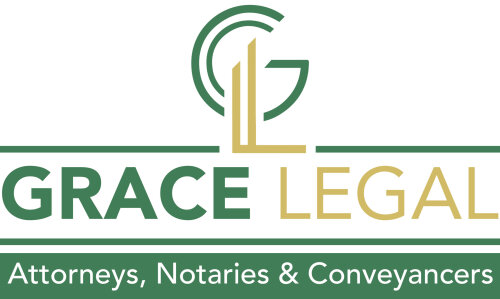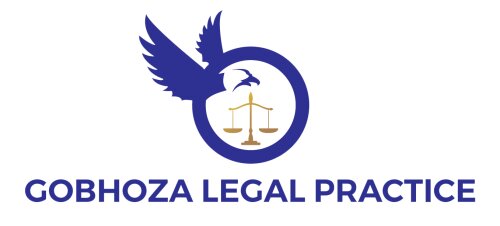Best Tax Increment Financing Lawyers in Gaborone
Share your needs with us, get contacted by law firms.
Free. Takes 2 min.
List of the best lawyers in Gaborone, Botswana
About Tax Increment Financing Law in Gaborone, Botswana
Tax Increment Financing (TIF) is an economic development tool used by local governments to encourage investment in specific areas by financing infrastructure and other community-improvement projects. In Gaborone, Botswana, TIF is an emerging strategy aimed at stimulating economic growth and urban renewal. It involves dedicating future gains in taxes to subsidize current improvements, which are projected to create the conditions for increased property values and economic activity.
Why You May Need a Lawyer
There are several situations where legal advice may be necessary when dealing with TIF in Gaborone, Botswana:
- Understanding the complexities of TIF agreements and ensuring compliance with local regulations.
- Negotiating the terms of a TIF deal with local government authorities.
- Resolving disputes related to tax assessments and increments.
- Ensuring that development objectives align with community goals and legal requirements.
- Addressing any issues related to property rights or zoning laws that might affect a TIF project.
Local Laws Overview
In Gaborone, TIF is governed by a combination of local fiscal policies and urban planning regulations. Key aspects include:
- The requirement for public involvement and transparency in developing TIF proposals.
- Guidelines on how taxation increments are calculated and allocated to projects.
- Restrictions on the types of projects that qualify for TIF funding, typically focusing on infrastructure and public services.
- The necessity of alignment with broader city development plans and objectives.
- Monitoring and reporting obligations to ensure accountability and proper use of funds.
Frequently Asked Questions
What is Tax Increment Financing used for in Gaborone?
TIF is used to support infrastructure development, urban renewal, and economic growth initiatives within designated areas.
Who can apply for a TIF agreement?
Typically, local government entities or developers working on projects that meet specific public improvement criteria can apply for TIF agreements.
How are tax increments calculated?
Tax increments are calculated based on the increase in property tax revenue resulting from the increased property values following the improvements.
What are the benefits of TIF in Gaborone?
The benefits include increased property values, improved infrastructure, and enhanced economic development in targeted areas.
Are there risks involved with TIF projects?
Yes, risks can include the failure to achieve projected tax revenue increases, leading to financing shortfalls and potential challenges for ongoing development projects.
Can TIF be used for residential development?
TIF can be used for residential development if it is part of a broader urban renewal strategy that includes public benefits like improved infrastructure or community facilities.
What role does the government play in TIF projects?
The government is responsible for approving TIF projects, managing the allocation of tax increments, and ensuring compliance with legal and development objectives.
How long does a TIF agreement last?
TIF agreements typically last until the projected tax increments fully cover the costs of the improvements, which could be several years depending on the project scope.
What happens if a TIF project fails?
If a TIF project fails, the responsibility could fall on both the developers and the government. Legal recourse may be necessary to resolve financial obligations and liabilities.
Are there alternatives to TIF for financing development projects?
Alternatives include public-private partnerships, grants, direct government funding, or private investment tailored to the specific needs of the project.
Additional Resources
For those seeking more information or assistance with TIF in Gaborone, consider these resources:
- The Gaborone City Council for guidelines and applications related to TIF projects.
- Local law firms specializing in tax and development law.
- Economic development agencies that can provide insights and support for TIF initiatives.
- Seminars and workshops offered by financial institutions on urban development funding strategies.
Next Steps
If you require legal assistance with TIF in Gaborone, consider the following steps:
- Research and contact attorneys specializing in tax and urban development law.
- Gather all relevant documentation regarding your TIF project or proposal.
- Schedule consultations to discuss your needs, expectations, and any potential legal implications.
- Evaluate the legal advice provided and integrate it into your project planning and execution.
Lawzana helps you find the best lawyers and law firms in Gaborone through a curated and pre-screened list of qualified legal professionals. Our platform offers rankings and detailed profiles of attorneys and law firms, allowing you to compare based on practice areas, including Tax Increment Financing, experience, and client feedback.
Each profile includes a description of the firm's areas of practice, client reviews, team members and partners, year of establishment, spoken languages, office locations, contact information, social media presence, and any published articles or resources. Most firms on our platform speak English and are experienced in both local and international legal matters.
Get a quote from top-rated law firms in Gaborone, Botswana — quickly, securely, and without unnecessary hassle.
Disclaimer:
The information provided on this page is for general informational purposes only and does not constitute legal advice. While we strive to ensure the accuracy and relevance of the content, legal information may change over time, and interpretations of the law can vary. You should always consult with a qualified legal professional for advice specific to your situation.
We disclaim all liability for actions taken or not taken based on the content of this page. If you believe any information is incorrect or outdated, please contact us, and we will review and update it where appropriate.















